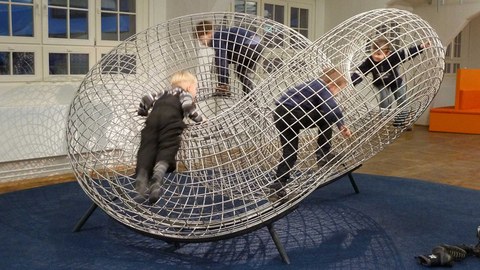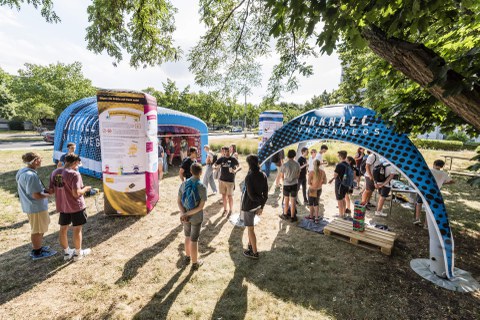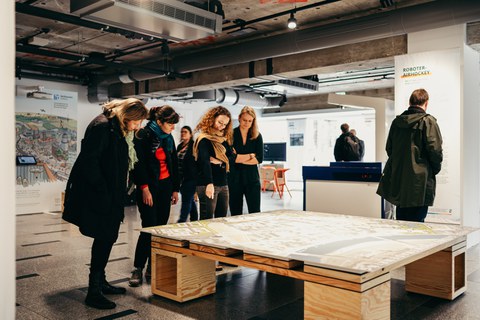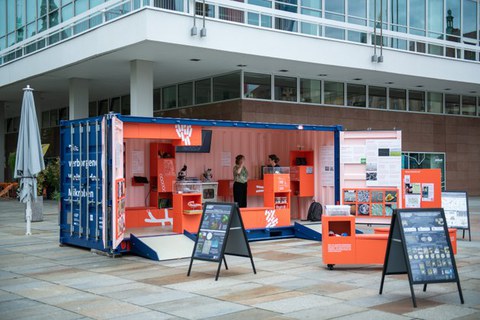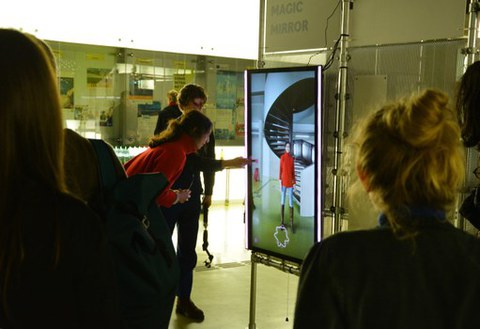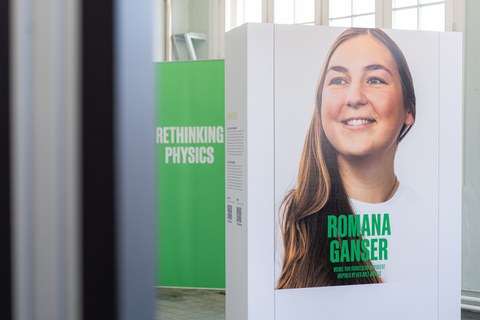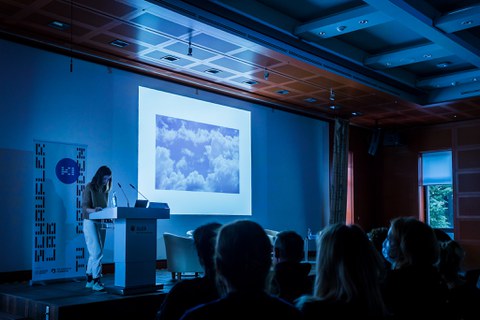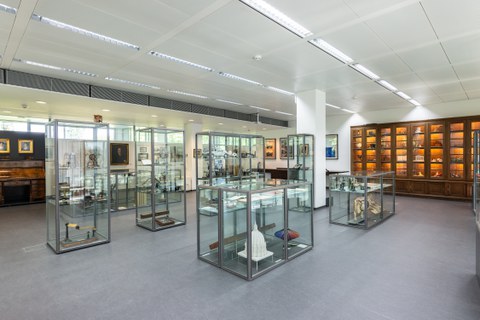Museums and exhibitions
From interactive hands-on stations to historical collections you can marvel at: Exhibitions and museums offer a wealth of opportunities to present scientific topics in an inspiring way and make them accessible to a wide audience.
Big Bang on the Move
The mobile exhibition Big Bang on the move brings our research into the world of particle physics to the public and shows how science has revolutionized our understanding of the universe. Visitors will be taken on an exciting journey through time – from the Big Bang to the present day in just a few steps. It was developed by the Particle World Network, which is based at TU Dresden.
COSMO Science Forum
COSMO in the Kulturpalast is a meeting place for society and research in the heart of Dresden. The science forum is a joint project of the Barkhausen Institute and the Department of Speculative Transformation at TU Dresden. It offers a setting for various scientific fields and current research. Dialogue and discussion take center stage in both exhibitions and various events.
Bakteriopolis: The hidden world of microbes
Bakteriopolis transforms an existing container into an interactive experience that appeals to visitors of all ages. Thus, in collaboration with the Interactive Media Lab, using an augmented reality app, visitors will enjoy an interactive exploration of the different bacterial components, bacterial organization, and social interactions. The exhibition emphasizes bacteria's omnipresence and presents their versatility in different fields.
//DataSpaces
TU Dresden's Center for Interdisciplinary Digital Sciences (CIDS) is dedicated to research in the field of digitalization. The exhibition //DataSpaces. Experience Science. gives insights into the CIDS's work. From training an artificial neural network to playing with swarm behavior, you can see and experience supercomputing at TUD in interactive exhibit modules, gain insights into historical computing and computer technology, and even have a discussion with a chatbot, just to mention a few highlights.
On tour: "RETHINKING PHYSICS" - A Century of Quantum Mechanics. Time for a Female Perspective!
RETHINKING PHYSICS: On the occasion of the International Year of Quantum Science, the ct.qmat Cluster of Excellence presents the impressive profiles of established and aspiring women researchers and shares their enthusiasm and fascination for their scientific work. The traveling exhibition will be on display at the Technische Sammlungen Dresden until May 18, after which it will be shown at over 50 locations in Australia, Germany, Austria, and the United States.
RETHINKING PHYSICS exhibition website
Schaufler Lab@TU Dresden
With the Schaufler Lab@TU Dresden, TU Dresden and THE SCHAUFLER FOUNDATION have established a lively forum for a forward-looking dialogue between science, art and society. In this project, young researchers and artists come together across disciplinary boundaries to question current technologies, their origins, and their impacts on our modern world.
Schaufler Lab@TU Dresden website
University collections and the Gallery of the Office for Academic Heritage
TU Dresden possesses a major and unique stock of historical and current exhibits, encompassing 40 collections from the fields of science and technology and a significant number of art pieces. The Office for Academic Heritage is a central unit of the university and is responsible for the preservation of the collection items, while making them available to the public.

